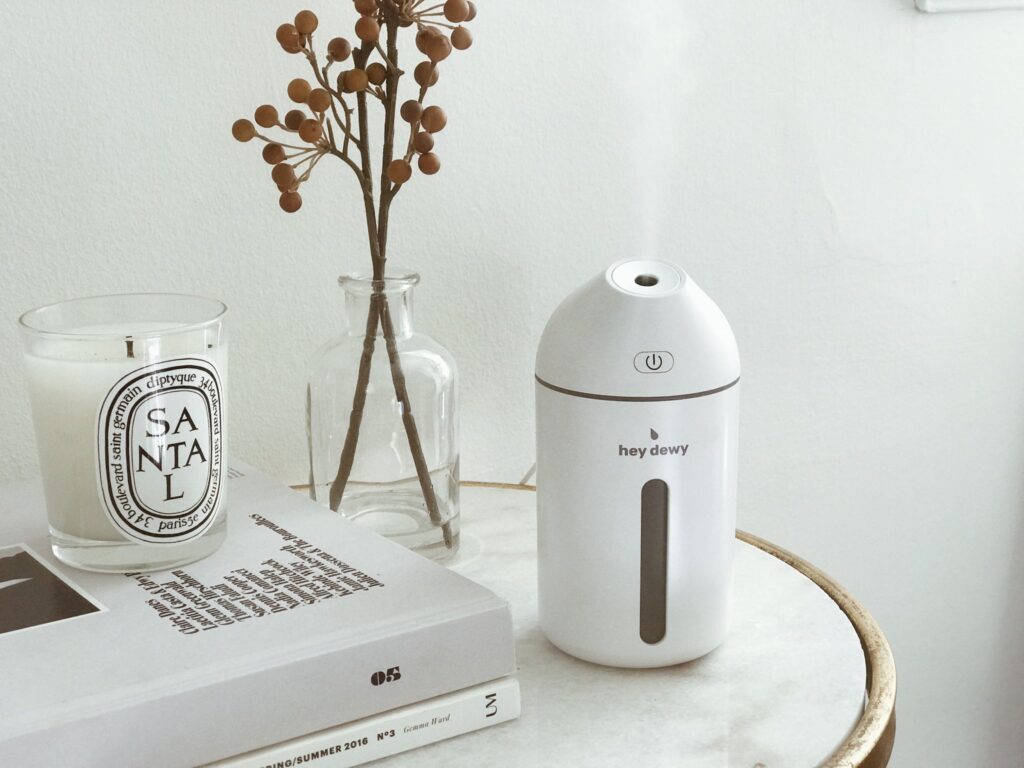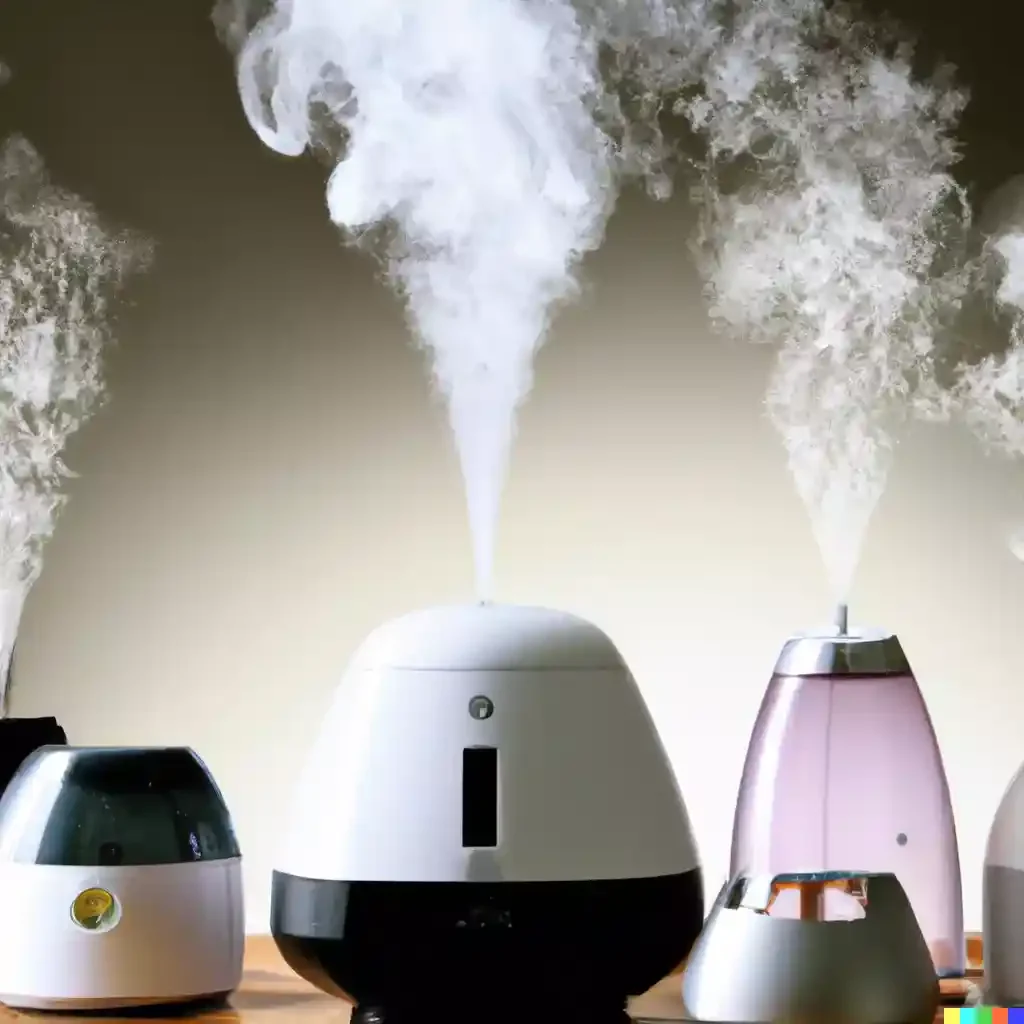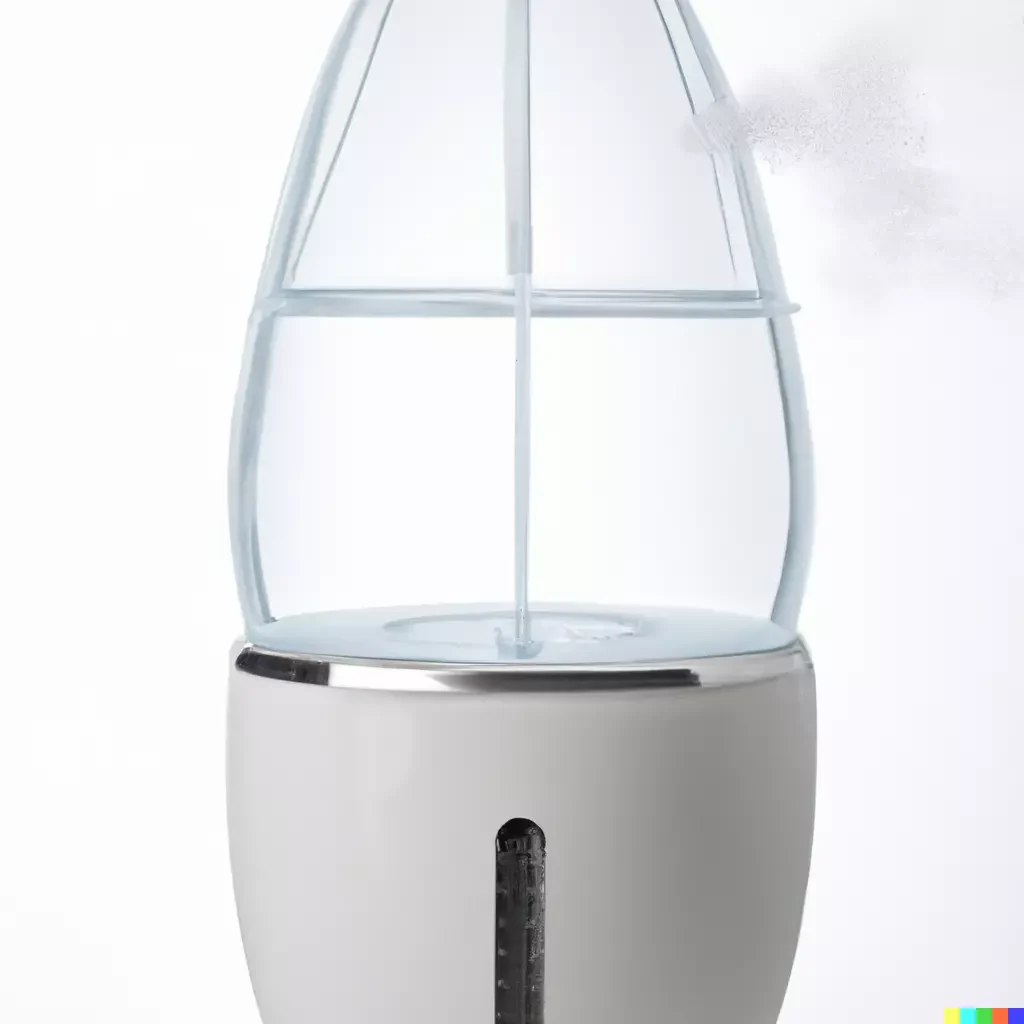Humidifiers do not clean the air but they can improve indoor air quality by increasing humidity levels, which can alleviate congestion, moisturize nasal passages, and soothe skin. However, if you’re looking to remove contaminants and allergens from the air, an air purifier would be a better choice.

Credit: heydewy.com
The Function Of Humidifiers
Humidifiers primarily work to add moisture to the air, which can have several benefits for indoor environments.
Improving Air Quality
Humidifiers help to improve indoor air quality by increasing humidity levels and aiding in reducing congestion and skin dryness.
Moist air from humidifiers can also support the body’s defense mechanisms against bacteria and viruses.
Increasing Indoor Humidity
Increasing indoor humidity is a key function of humidifiers to maintain a comfortable and healthy living environment.
Humidifiers add moisture to the air, which can be particularly beneficial in dry climates or during winter months.
Can Humidifiers Clean The Air?
When it comes to improving indoor air quality, many people wonder if humidifiers can actually clean the air. While humidifiers are not designed to specifically remove contaminants like mold or dust, they can still have a positive impact on the air you breathe.
Understanding The Purpose Of Humidifiers
A humidifier’s main purpose is to increase the moisture levels in the air, which can be especially helpful during dry winter months or in arid climates. By releasing moisture into the air, humidifiers can alleviate symptoms of dryness and discomfort such as congestion, dry or cracked skin, and even irritated nasal passages.
In fact, the moist environment created by a humidifier can support your body’s natural defenses against bacteria and viruses, as dry air can often make it easier for these harmful microorganisms to thrive. So while humidifiers may not directly clean the air, they can indirectly enhance indoor air quality by creating a more comfortable and healthier environment.
Differentiating From Air Purifiers
It is important to note that humidifiers should not be confused with air purifiers. While both devices can be beneficial in ensuring clean and healthy indoor air, they serve different purposes.
Air purifiers are specifically designed to remove pollutants and allergens from the air, such as dust, pollen, pet dander, and even odors. They use filters or other advanced technologies to capture and trap these airborne contaminants, resulting in cleaner and fresher air. So if your main concern is removing pollutants from the air, an air purifier would be the best choice.
On the other hand, humidifiers focus on adding moisture to the atmosphere. They do not actively collect or remove dust particles, but the increased moisture in the air can have a secondary effect on airborne dust. The moist air can make the dust particles heavier, causing them to settle down instead of staying suspended in the air. So if you are looking to add humidity and improve comfort levels, a humidifier is the way to go.
In conclusion, while humidifiers may not directly clean the air by removing contaminants, they can improve indoor air quality by increasing moisture levels and alleviating discomfort caused by dryness. If your main concern is purifying the air, an air purifier would be a more appropriate choice.
Benefits Of Using A Humidifier
Using a humidifier does not directly clean the air but can still offer benefits to indoor air quality. It helps reduce congestion, soothes dry skin, and moistens nasal passages, supporting the body’s natural defenses against bacteria and viruses. While it may not remove contaminants, increasing indoor humidity can improve overall air quality.
Supporting Natural Defenses
Using a humidifier can play a vital role in supporting your body’s natural defenses against harmful bacteria and viruses. When the air in your environment becomes dry, it can cause the nasal passages to become dry as well, creating an ideal environment for bacteria and viruses to thrive. By introducing moisture into the air with a humidifier, you can help keep your nasal passages moist, making it more difficult for germs to enter your body and increasing your resistance to illness.
Moisturizing Nasal Passages
Dry nasal passages can lead to a variety of discomforts, such as nasal congestion, nosebleeds, and even sinus infections. By using a humidifier, you can help moisturize and soothe your nasal passages, providing relief from these symptoms. The added moisture in the air can also help to alleviate dry and itchy skin, as well as dry eyes and a dry throat. In conclusion, using a humidifier can provide several benefits for your overall well-being. By supporting your body’s natural defenses and moisturizing your nasal passages, you can improve your indoor air quality and experience relief from various discomforts. Whether you’re looking to alleviate nasal congestion or simply enhance your overall comfort, a humidifier can be a valuable addition to your home or workspace.
Comparison With Air Purifiers
Both air purifiers and humidifiers have their unique benefits when it comes to improving indoor air quality. While air purifiers are designed specifically to target and remove pollutants, allergens, and contaminants such as dust, mold spores, and pet dander from the air, humidifiers do not have this capability.
- Air purifiers effectively filter out harmful particles in the air
- Humidifiers focus on adding moisture to the atmosphere
On the other hand, humidifiers play a crucial role in adding moisture to the air, which can have various health benefits. Dry indoor air can cause discomfort, exacerbate respiratory issues, and lead to dry skin and irritated sinuses. By introducing moisture into the atmosphere, humidifiers can alleviate these symptoms and create a more comfortable environment.
Improving Indoor Air Quality
Indoor air quality can have a significant impact on our health and well-being. Factors such as humidity levels play a crucial role in determining indoor air quality. Many people wonder, “Do humidifiers clean the air?” Let’s delve into the details to understand how humidifiers not only increase moisture levels but also contribute to improving indoor air quality.
Secondary Effect On Airborne Dust Particles
Do humidifiers take dust out of the air? While humidifiers may not actively collect dust, they have a significant effect on airborne dust particles. Dust tends to linger in the air due to its lightweight nature. However, with increased moisture in the indoor air, the airborne dust particles become heavier, causing them to settle and making it difficult for them to stay suspended. This secondary effect aids in reducing the presence of dust in the air, leading to improved air quality.
Enhancing Health Benefits
Improving Indoor Air Quality: In addition to affecting airborne dust, humidifiers provide various health benefits by enhancing indoor air quality. By increasing indoor humidity, humidifiers alleviate congestion, soothe dry or cracked skin, and moisturize nasal passages, thus bolstering the body’s natural defense mechanisms against bacteria and viruses. These combined health benefits create a more conducive and healthier environment for individuals spending significant time indoors.

Credit: www.nytimes.com
:strip_icc()/humidifier-pieces-50517767-9b234d9d9f044bd48013eeaae46367b0.jpg)
Credit: www.bhg.com
Frequently Asked Questions For Do Humidifiers Clean The Air
Do Humidifiers Help With Air Quality?
Humidifiers can enhance air quality by increasing indoor humidity, alleviating congestion, and moistening nasal passages for better defense against bacteria and viruses. They do not remove contaminants but can improve overall indoor air quality.
Which Is Better Air Purifier Or Humidifier?
An air purifier is better for removing pollutants and allergens from the air, while a humidifier is best for adding moisture to the atmosphere. Both devices have their benefits, depending on your specific needs.
Does A Humidifier Disinfect The Air?
No, a humidifier does not disinfect the air. Its purpose is to improve air quality by increasing humidity levels, which can relieve congestion, soothe dry skin, and moisten nasal passages. To clean the air and remove contaminants, an air purifier is recommended.
Do Humidifiers Take Dust Out Of The Air?
Humidifiers don’t actively remove dust but raise humidity levels, making dust particles heavier to settle.
Conclusion
While humidifiers can’t remove contaminants like mold, they do improve indoor air quality. Increasing humidity can ease congestion, soften skin, and support the body’s defenses. For cleaner air, consider using an air purifier alongside a humidifier. Strike a balance for optimal air quality.





